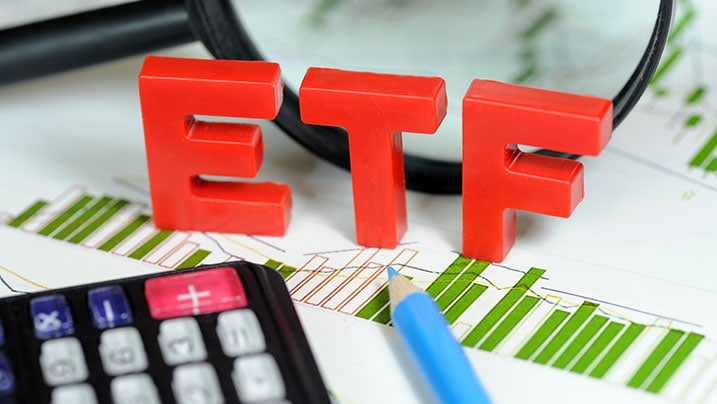CKYC Registry
-
Customer Service Contact us Service request Locate a branch
Find all the help you need
Scan the QR, get our app, and find help on your fingertips

Help CenterSupport topics, Contact us, FAQs and more
-
Login
Are you ready for an upgrade?
Login to the new experience with best features and services
-
Login
Are you ready for an upgrade?
Login to the new experience with best features and services
- Accounts
-
Deposits
IDFC FIRST Bank Deposits
View all Deposits -
Loans
IDFC FIRST Bank Loans
View all Loans - Wealth & Insure
-
Payments
IDFC FIRST Bank Payments
View all Payments -
Cards
IDFC FIRST Bank Cards
View all Cards - Blogs
- Corporate Account
-
Cash Management Services
IDFC FIRST Bank Cash Management Services
View all Cash Management Services - Supply Chain Finance
-
Corporate Lending
IDFC FIRST Bank Lending
View all -
Treasury
IDFC FIRST Bank Treasury
See more details - NBFC Financing
Support topics, Contact us, FAQs and more
- IDFC FIRST Bank Accounts
-
Savings Account
-
Corporate Salary
Account -
Senior Citizens
Savings Account -
First Power
Account -
Current Account
-
NRI Savings
Account -
TASC Institutional
Account -
Savings Account
Interest Calculator
- IDFC FIRST Bank Deposits
-
Fixed Deposit
-
Recurring Deposit
-
NRI Fixed Deposit
-
Safe Deposit Locker
-
FD Calculator
-
RD Calculator
- IDFC FIRST Bank Loans
-
Personal Loan
-
Consumer Durable
Loan -
Home Loan
-
Business Loan
-
Professional Loan
-
Education Loan
-
New Car Loan
-
Pre-owned Car Loan
-
Two Wheeler Loan
-
Pre-owned Two
Wheeler Loan -
Commercial Vehicle
Loan -
Gold Loan
-
Loan Against Property
-
Loan Against Securities
-
Easy Buy EMI card
-
Personal Loan
EMI Calculator -
Education Loan
EMI Calculator -
Home Loan
EMI Calculator -
EMI Calculator
-
Personal Loan Eligibility Calculator
- IDFC FIRST Bank Wealth & Insure
-
FIRST Select
-
FIRST Wealth
-
FIRST Private
-
Mutual Funds
-
Sovereign Gold Bond
-
Demat Account
-
Term Insurance
-
Life Insurance
-
Health Insurance
-
General Insurance
-
Bonds
-
Loan Against
Securities -
Portfolio Management
Service
- IDFC FIRST Bank Payments
-
FASTag
-
Credit Card
Bill Payments -
UPI
-
Funds Transfer
-
Forex Services
-
Pay Loan EMI
- IDFC FIRST Bank Cards
-
Ashva :
Metal Credit Card -
Mayura :
Metal Credit Card -
FIRST Millennia
Credit Card -
FIRST Classic
Credit Card -
FIRST Select
Credit Card -
FIRST Wealth
Credit Card -
FIRST WOW!
Credit Card -
Deals
-
Debit Cards
-
Co-branded Cards
-
Credit Card
EMI Calculator -
FIRST Corporate
Credit Card -
FIRST Purchase
Credit Card -
FIRST Business
Credit Card
- Premium Metal Credit Cards
-
AshvaLifestyle1% Forex₹2,999
-
MayuraLifestyleZero Forex₹5,999
-
FIRST PrivateInvite Only
- Best for travellers
-
MayuraZero ForexMetal₹5,999
-
Ashva1% ForexMetal₹2,999
-
FIRST WOW!Zero ForexTravelLifetime Free
-
FIRST SWYPTravel OffersEMI₹499
-
FIRST Select1.99% ForexLifestyleLifetime Free
-
FIRST Wealth1.5% ForexLifestyleLifetime Free
-
Club VistaraTravelLifestyle₹4,999
-
IndiGo IDFC FIRST Dual Credit CardTravelLifestyle₹4,999
- Max benefits, Free for life
-
FIRST Classic10X RewardsShoppingNever Expiring Rewards
-
FIRST Millennia10X RewardsShoppingNever Expiring Rewards
-
FIRST Select10X RewardsLifestyle1.99% Forex
-
FIRST Wealth10X RewardsLifestyle1.5% Forex
-
FIRST WOW!RewardsTravelZero Forex
-
LIC ClassicRewardsInsuranceShopping
-
LIC SelectRewardsInsuranceShopping
- Reward Multipliers
-
AshvaLifestyleMetal₹2,999
-
MayuraLifestyleZero Forex₹5,999
-
FIRST ClassicNever Expiring RewardsShoppingLifetime Free
-
FIRST MillenniaNever Expiring RewardsShoppingLifetime Free
-
FIRST SelectNever Expiring RewardsLifestyleLifetime Free
-
FIRST WealthNever Expiring RewardsLifestyleLifetime Free
- Rewards & Credit on UPI
-
FIRST Power+FuelUPI₹499
-
FIRST PowerFuelUPI₹199
-
FIRST EA₹NVirtual1% Cashback₹499
-
FIRST DigitalVirtualUPI₹199
-
IndiGo IDFC FIRST Dual Credit CardUPITravelDual cards
- Fuel and Savings
-
FIRST PowerRewardsUPI₹199
-
FIRST Power+RewardsUPI₹499
-
LIC ClassicRewardsInsuranceShopping
-
LIC SelectRewardsInsuranceShopping
- Express and Flaunt
-
AshvaMetal1% Forex₹2,999
-
MayuraMetalZero Forex₹5,999
-
FIRST SWYPEMIOfferMAX₹499
-
FIRST MillenniaRewardsShoppingLifetime Free
- FD Backed rewarding Credit Cards for all
-
FIRST EA₹NVirtualCashback₹499
-
FIRST WOW!Zero ForexTravelLifetime Free
-
CreditPro Balance TransferTransfer & SaveReduce InterestPay Smartly
- IDFC FIRST Bank NRI Forex Solutions
-
Send money to India-Wire transfer
-
Send money to India-Digitally
-
Send money abroad
-
Max Returns FD (INR)
- IDFC FIRST Bank MSME Accounts
-
Platinum Current
Account -
Gold
Current Account -
Silver Plus
Current Account -
Merchant Multiplier
Account -
Agri Multiplier
Account -
TASC Institutional
Account -
Dynamic Current
Account -
World business
Account -
First Startup
Current Account
- IDFC FIRST Bank Business Loans
-
Business Loan
-
Professional Loan
-
Loan Against Property
-
Business Loan for Women
-
Working Capital Loan
-
Construction Equipment Loan
-
Machinery Loan
-
Healthcare Equipment Loan
- IDFC FIRST Bank Business Solutions
-
Payment Solutions
-
Tax Payments
-
Doorstep Banking
-
Point of Sale (POS)
-
Escrow Accounts
-
NACH
-
Payment Gateway
-
UPI
-
Virtual Accounts
-
As per amendment in the Income Tax Rules, PAN or Aadhaar are to be mandatorily quoted for cash deposit or withdrawal aggregating to Rupees twenty lakhs or more in a FY. Please update your PAN or Aadhaar. Kindly reach out to the Bank’s contact center on 1800 10 888 or visit the nearest IDFC FIRST Bank branch for further queries.
-
-
Most Searched
Sorry!
We couldn’t find ‘’ in our website
Here is what you can do :
- Try checking the spelling and search
- Search from below suggestions instead
- Widen your search & try a more generic keyword
Suggested
Get a Credit Card
Enjoy Zero Charges on All Commonly Used Savings Account Services
Open Account Now
Exchange-traded funds (ETFs) and mutual funds are popular investment instruments that seem similar. They’re less volatile than stocks and can help create long-term wealth. However, the two have significant differences, and you should know about them before investing. This article walks you through exchange-traded funds and mutual funds and how they differ.
What is an exchange-traded fund?
An exchange-traded fund is a basket of securities investors can trade, just like a company's share. ETFs are popular and valuable because they're offered in all asset classes, including commodities and currencies. An ETF's price changes daily as it is traded live on stock exchanges. They're also of several types, with a few of them listed below:
Equity ETF
Equity ETFs track indices like the NIFTY 50. The price of an equity ETF is determined by its underlying index’s movement, which is why it keeps changing daily.
Bond ETF
Bond ETFs are a combination of debt instruments. They track fixed income instruments such as debentures and government bonds.
Thematic ETF
Thematic exchange-traded funds track the performance of a particular industry. They are also called 'Sectoral ETFs' since they replicate the performance of a particular sector.
Commodity ETF
Commodity ETFs are among the most popular ETFs in India. Gold ETFs and silver ETFs are the two commodity ETFs available in India.
International ETF
If an investor wishes to invest in foreign companies directly, they can invest in international ETFs. An international ETF tracks the index of a specific country or region.
What are mutual funds?
A mutual fund is a pooled investment that collects money from various investors and invests it in securities like stocks, bonds, and other assets. Depending on the criteria of classification, mutual funds can be divided into many types.
Open-ended mutual fund
A mutual fund scheme that is available for subscription and redemption throughout the year is called an open-ended mutual fund.
Close-ended mutual fund
In a close-ended mutual fund, the mutual fund units can only be purchased during the initial offer period. These units can later be redeemed at the maturity date.
Actively managed mutual fund
An actively managed mutual fund is managed by a fund manager who decides which stocks to buy, sell, or hold. These decisions are based on the fund manager's professional judgment and are backed by analytical research.
Passively managed mutual funds
These mutual funds aren't managed by a fund manager. A passively managed mutual fund track's the scheme's benchmark index.
Based on asset class, mutual funds are further divided into four major types.
Equity mutual fund
Equity mutual funds invest in stocks. The risk and reward in equity mutual funds are high.
Debt mutual fund
Debt mutual funds invest in debentures, bonds, and other fixed income assets. They’re comparatively safer than equity mutual funds.
Money market mutual fund
Money market mutual fund invests in liquid instruments. Investors looking to park their surplus funds in a low-risk investment instrument can invest in a money market mutual fund.
Balanced hybrid mutual fund
A balanced hybrid mutual fund invests in a mix of asset classes, maintaining a certain percentage between equity and debt. In this way, the risk and returns are balanced.
ETFs vs mutual funds: What is the difference?
ETFs and mutual funds have fundamental differences. We've listed a few of them below:
- The value of an exchange-traded fund changes during a trading day. A mutual fund, however, is traded on the closing net asset value (NAV).
- Exchange-traded funds can be bought and sold at any time on the stock market at the prevailing market price. In contrast, a mutual fund can only be purchased at the NAV price fixed during the trading day.
- Mutual funds have varying operational expenses, whereas exchange-traded funds do not come with additional costs.
- Certain mutual funds charge a penalty upon selling units early. An exchange-traded fund does not attract any charges on the sale of an asset.
ETF vs mutual fund: Where to invest?
The decision between ETFs and mutual funds depends on your investment strategy and risk appetite. Both investment vehicles offer unique benefits to help build wealth. You can invest in them consistently to achieve your investment goal. If you’re investing in mutual funds through a Systematic Investment Plan (SIP), you can use IDFC FIRST Bank’s SIP calculator. It can help you plan your investments and reach your goal faster.
Disclaimer
The contents of this article/infographic/picture/video are meant solely for information purposes. The contents are generic in nature and for informational purposes only. It is not a substitute for specific advice in your own circumstances. The information is subject to updation, completion, revision, verification and amendment and the same may change materially. The information is not intended for distribution or use by any person in any jurisdiction where such distribution or use would be contrary to law or regulation or would subject IDFC FIRST Bank or its affiliates to any licensing or registration requirements. IDFC FIRST Bank shall not be responsible for any direct/indirect loss or liability incurred by the reader for taking any financial decisions based on the contents and information mentioned. Please consult your financial advisor before making any financial decision.
The features, benefits and offers mentioned in the article are applicable as on the day of publication of this blog and is subject to change without notice. The contents herein are also subject to other product specific terms and conditions and any third party terms and conditions, as applicable. Please refer our website www.idfcfirstbank.com for latest updates.























